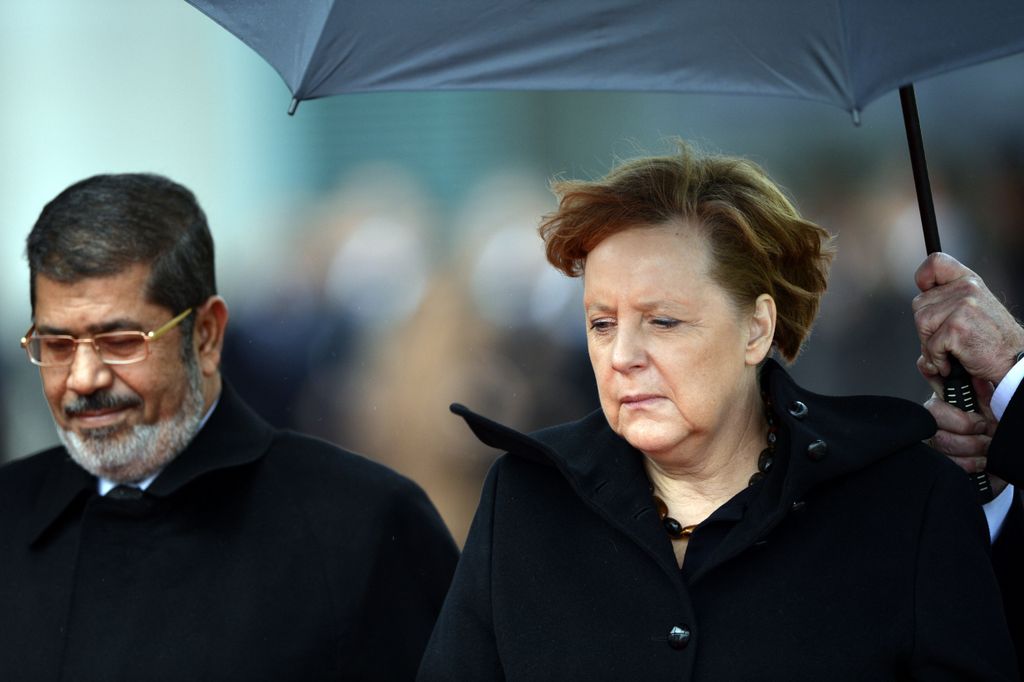
(Photo by Marwa Morgan)
Going through Facebook on his cell phone one day, Kerollos Shokry Atallah pressed “like” and joined a page, “The Knights of the Cross”. His neighbours found the page, which posts anti-Islamic videos and blogs posts, offensive and called the police. Now, the 29-year-old has been fined EGP 6,000 and sentenced to six years in prison.
Attalah was one of a number of Egyptians convicted of the charge in June. One day before Atallah’s trial, Bishoy Armia, 32, was sentenced to five years and a fine of EGP 500 after being accused of “inciting sectarian strife”. A week before, Dimyana Abdel Nour, 25, a primary school teacher, was sentenced to pay a fine of EGP 100,000 for “defaming the Islamic religion” in her class, despite testimonies by students and the school manager denying the incident.
Reports of blasphemy have increased since the 25 January Revolution, according to The Egyptian Initiative for Personal Rights (EIPR). At least 48 cases were reported between January 2011 and December 2013.
“The blasphemy cases appear to be part of a much broader trend of criminalising free expression,” said Jay Roddy, a research associate at the Tahrir Institute for Middle East Policy.
Blasphemy reports have increased with the political tension, said Ishak Ibrahim, officer for Freedom of Rights and belief at EIPR.
In the past, public figures were most likely to be prosecuted for blasphemy. But now, the majority of cases are being levied against private individuals.
“Egypt tends to support the role of religion, namely Islam, in public life,” Roddy said, even if this support is “to the detriment” of other religious beliefs.
In many cases, particularly since 2012, neighbours or co-workers report individuals after a discussion or an online post related to religion. Oftentimes, filing a report is an action of “revenge” against “anyone who has different beliefs than that of the majority”, he said.
Due to fears of sectarian violence, security forces immediately arrest anyone who gets reported without confirming the report, Ibrahim said. Eventually, the investigation results are “just a carbon copy” of what the accusers originally said.
“Accusations of blasphemy have been used to stir sectarian passions to the point of violence,” Roddy said. Four Shi’a were killed in Giza, for example, after an Islamist conference featured speakers calling Shi’a “deserters” and “impure”.
Those accused of blasphemy don’t only face legal consequences, they may also face some kind of a “social punishment”, Ibrahim said. In one incident, two men were attacked by their neighbours and sent out of their village in Al-Minya in 2013, after one of them, Atteya Guirguis Atteya, posted “an offensive photo of Al-Kaaba”, the holy Muslim building in Mecca, and the other Mansour Shindy, “liked” it.
Legal experts say the increase of reports of blasphemy, draws the validity of the laws backing such prosecution into question.
According to articles 64 and 65 of Egypt’s constitution, which guarantees “freedom of belief, thought, opinion, and expression”, prosecuting someone for blasphemy is unconstitutional, Roddy said.
Egyptian statutes governing defamation of religion also violate the International Covenant on Civil and Political Rights (ICCPR), which Egypt signed in 1967, he said. Article 18 of the ICCPR states that everyone has the freedom to adopt any belief or religion and manifest their belief privately or publically, individually or in a community.
The Egyptian penal law does not define defamation, or specify a difference between defamation, criticism or comparison, Ibrahim said.
“These laws restrict people’s thoughts and limit their freedom,” he said.
Most of the reported cases since 2011 were against private individuals, but public figures have also been cited for blasphemy.
Satirist Bassem Youssef was prosecuted for blasphemy along with stand-up comedians Ali Qandil and Khaled Mansour, after a group of Islamist lawyers accused them of “defaming the Islamic religion and Muslim prayers” in one of the episodes of Youssef’s show “Al-Bernameg”, where they mocked the Islamist former president Mohamed Morsi and his followers.
Accusations of this type are not new to Egypt.
Nine followers of Ahamadiyya religious movement were arrested in 2010, after being accused of trying to “spread extremist views, including that the prophet Muhammad is not the last prophet”. Journalist and feminist activist Nawal Al-Saadawi was also accused of blasphemy in 2007. After her article “God resigns” was published, Al-Saadawi was accused by Muslim scholars of “defaming God and the prophets” in an action of “clear blasphemy”, according to a statement issued by Al-Azhar. Al-Saadawi was prosecuted for “defaming God,” after her statement in a TV interview calling for rewriting one of the Quran verses to refer to God as a female, as the Arabic language is “sexist”. A lawyer, Samir Sabry, filed a case calling for the drop of Al-Saadawi’s nationality, which was rejected by the Egyptian administrative court in 2008.
In 1959, the Nobel Prize winning Egyptian novelist Naguib Mahfouz started publishing parts of his novel “Awlad Haretna” (Children of our Alley) in state-owned newspaper Al-Ahram. Mahfouz was highly criticised by Azhar scholars, who pushed then president Gamal Abd El-Nasser to not publish the novel “without Al-Azhar’s consent”. In 1994, Mahfouz was stabbed in the neck; the attacker mentioned during the investigations that he wanted to kill the novelist for his defamation of religion in “Awlad Haretna”, which was not even published until 2006, according to a book by the Egyptian critic Ragaa Al-Naqash.



